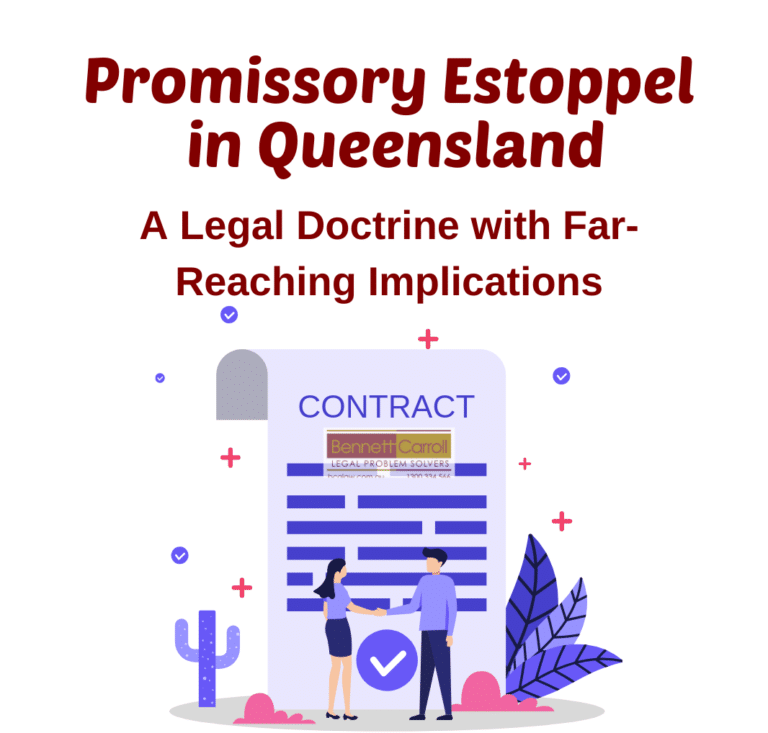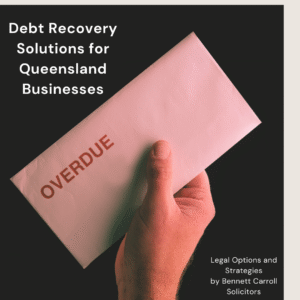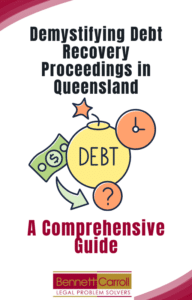Promissory estoppel is a legal doctrine that has been recognized and applied in various jurisdictions around the world, including Queensland, Australia. This doctrine plays a vital role in contract law, helping to protect individuals and businesses when promises are made but not formalized in a legally binding contract. In Queensland, the principle of promissory estoppel is firmly established and serves as a valuable tool for those seeking redress when a promise has been broken. In this article, we will explore the concept of promissory estoppel in Queensland, its elements, and its significance in the state’s legal landscape.
Understanding Promissory Estoppel
Promissory estoppel, also known as equitable estoppel, is a legal doctrine that prevents a party from going back on their promise, even if that promise is not supported by a formal contract. This doctrine is rooted in equity, emphasizing fairness and justice. When the doctrine is invoked, a party who made a promise to another may be estopped or prevented from later denying that promise, especially when the other party has relied on the promise to their detriment.
In Queensland, as in other jurisdictions, the doctrine of promissory estoppel operates to protect the reasonable expectations of parties who have relied on a promise, even when no formal contract exists. This doctrine acts as a safeguard against unfairness and injustice that might arise when one party changes their position after someone else has acted in reliance on their promise.
Elements of Promissory Estoppel
To successfully invoke the doctrine of promissory estoppel in Queensland, certain elements must be satisfied:
Clear and Unambiguous Promise: There must be a clear and unambiguous promise or assurance made by one party to another. The promise may be explicit or inferred from the conduct or statements of the promisor.
Reliance: The promisee must have reasonably relied on the promise to their detriment. Reliance can take many forms, including financial investments, changes in position, or forgoing other opportunities.
Change of Position: The promisee must have changed their position based on the promise. This change of position can be physical or financial, and it must be detrimental.
Inequity: It must be unjust or inequitable for the promisor to renege on the promise, considering the promisee’s reliance.
Equitable Remedy: The court must be satisfied that an equitable remedy, such as estoppel, is necessary to prevent an injustice.
Significance in Queensland Law
Promissory estoppel in Queensland, as in other parts of Australia, has significant legal implications. This doctrine allows individuals and businesses to hold parties accountable for their promises, even in the absence of a formal written contract. It upholds the principle that promises should be honoured and that detrimental reliance on those promises should be protected.
Furthermore, the doctrine of promissory estoppel helps maintain confidence in commercial and personal relationships. It encourages parties to act in good faith and ensures that promises have real legal consequences, preventing situations where a party may backtrack on their commitments to the detriment of others.
Queensland courts have consistently recognized and applied promissory estoppel to ensure that promises are upheld. This legal doctrine acts as a vital tool in providing remedies when parties act unfairly by reneging on their promises. In cases where the elements of promissory estoppel are met, courts may issue orders or remedies to ensure that the promisee is not unfairly prejudiced by the promisor’s actions.
Conclusion
In conclusion, promissory estoppel is a cornerstone of Queensland’s legal system, embodying principles of fairness and equity. By recognizing and applying this doctrine, Queensland courts play a crucial role in protecting the legitimate expectations of parties and promoting trust and reliability in contractual and non-contractual relationships. It serves as a reminder that, in the eyes of the law, a promise made should be a promise kept, and individuals and businesses should have legal recourse when promises are broken to their detriment.
Call us on or email and safeguard your interests every step of the way- We are your legal problem solvers.







